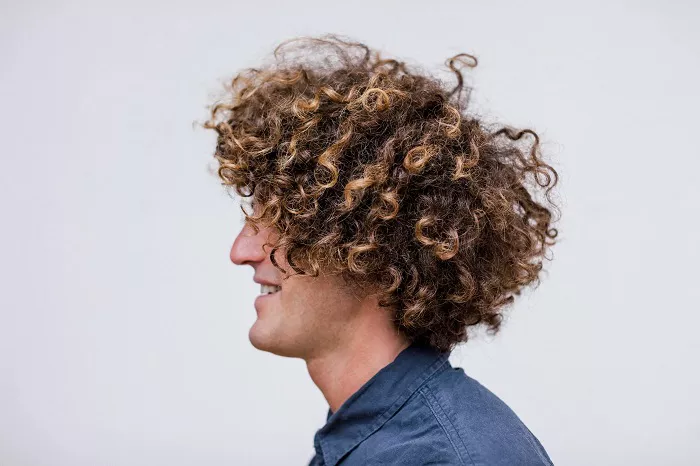African hair is naturally versatile. It holds volume, strength, and shape in a way that few other hair types can match. For men who want to experiment with curly hairstyles without relying on chemical treatments or heat-based tools, there are natural methods that can enhance and define curls at home. The benefit? Healthier hair, lower maintenance, and an authentic look rooted in your natural texture. Whether you’re aiming for a high-volume curly top or short defined coils, this guide offers clear steps to help you make African hair curly naturally.
Understanding African Hair Texture
Before we begin, it’s important to understand the nature of African hair. It is usually categorized as type 4 hair, which is tightly coiled, dense, and prone to dryness. Moisture retention and curl definition are the two biggest challenges. This is why any routine must start with proper hydration and gentle manipulation techniques.
Type 4A, 4B, and 4C: Know Your Curl Pattern
Type 4A hair has a defined curl pattern that is S-shaped. Type 4B has a more Z-shaped pattern and is more fluffy than defined. Type 4C is tightly coiled with little to no visible curl pattern and is most prone to shrinkage and dryness. The curl-making routine will vary slightly based on this texture.
How to Make African Hair Curly Naturally at Home?
To make African hair curly at home without using chemicals or curling irons, follow a structured method based on washing, conditioning, and defining curls with styling techniques. These methods not only bring out curls but also keep hair healthy and moisturized.
1. Start With a Gentle Cleanse
Always begin with a clean scalp and hair. Use a sulfate-free shampoo or a natural cleanser like African black soap. Avoid hot water. Instead, use lukewarm water to prevent stripping away natural oils.
2. Deep Conditioning is Key
Use a deep conditioner made specifically for coiled hair. Ingredients like shea butter, coconut oil, honey, and aloe vera are excellent for moisture. Apply generously, cover your hair with a shower cap, and let it sit for 30 to 45 minutes. Rinse thoroughly.
3. Moisturize With the LOC Method
LOC stands for Liquid, Oil, and Cream. This method helps trap moisture in your hair for longer periods.
- Liquid: Use water or a water-based leave-in conditioner.
- Oil: Seal in moisture with natural oils like castor oil, argan oil, or jojoba oil.
- Cream: Apply a curl cream or butter to define and soften your coils.
4. Use Curl Defining Techniques
Here are three effective methods to naturally define curls in African hair:
Finger Coiling
After moisturizing, take a small section of hair and twist it around your finger from root to tip. Hold for a few seconds and release. Repeat across your head. Let it air-dry or use a hooded dryer.
Two-Strand Twists
Separate your hair into sections. Twist each section using two strands. Sleep with a satin bonnet or durag. Undo the twists in the morning to reveal natural curls with definition and bounce.
Bantu Knots
Divide damp hair into sections, twist each section tightly, and coil it into a small bun. Secure with a pin. Let it dry overnight. When unraveled, these knots produce springy, well-formed curls.
Additional Tips for Long-Lasting Natural Curls
Use a Curl Enhancer
Natural curl enhancers made from flaxseed gel or aloe vera gel can be applied after moisturizing. They help with curl retention and hold without making hair crunchy.
Avoid Over-Manipulation
Too much combing or brushing can disrupt curl patterns and cause breakage. Use your fingers or a wide-tooth comb.
Protect While Sleeping
Use a satin or silk pillowcase, bonnet, or durag. This reduces friction and prevents moisture loss overnight.
Maintain a Healthy Scalp
Apply light oils to your scalp regularly to keep it nourished. Avoid heavy greases that can clog pores.
Men’s Curly Hairstyles You Can Try
Once you’ve curled your hair naturally, there are several styles you can explore. Curly fades, sponge curls, curly afro tops, or tapered sides with a curly crown are just a few.
FAQs About Making African Hair Curly Naturally
Can I get curls if my hair is 4C?
Yes. Type 4C hair can curl naturally with proper hydration and styling methods like finger coils or Bantu knots. It may require more time and moisture, but results are achievable.
How often should I curl my hair?
Every 1-2 weeks is ideal. Too much manipulation can cause stress and breakage. Focus on maintaining moisture between sessions.
Are there products I should avoid?
Avoid products with alcohol, sulfates, or petroleum-based ingredients. These can dry out your hair and reduce curl definition.
Conclusion
Learning to Men Hairstyle naturally at home takes consistency and care. It’s not about forcing a style onto your hair—it’s about working with your natural texture to unlock its full potential. Whether you prefer structured curls or loose coils, you can experiment safely at home with these steps.Natural curls are not just a look—they’re a statement of confidence and culture. With the right tools, knowledge, and techniques, every man can bring out the best in his crown.


